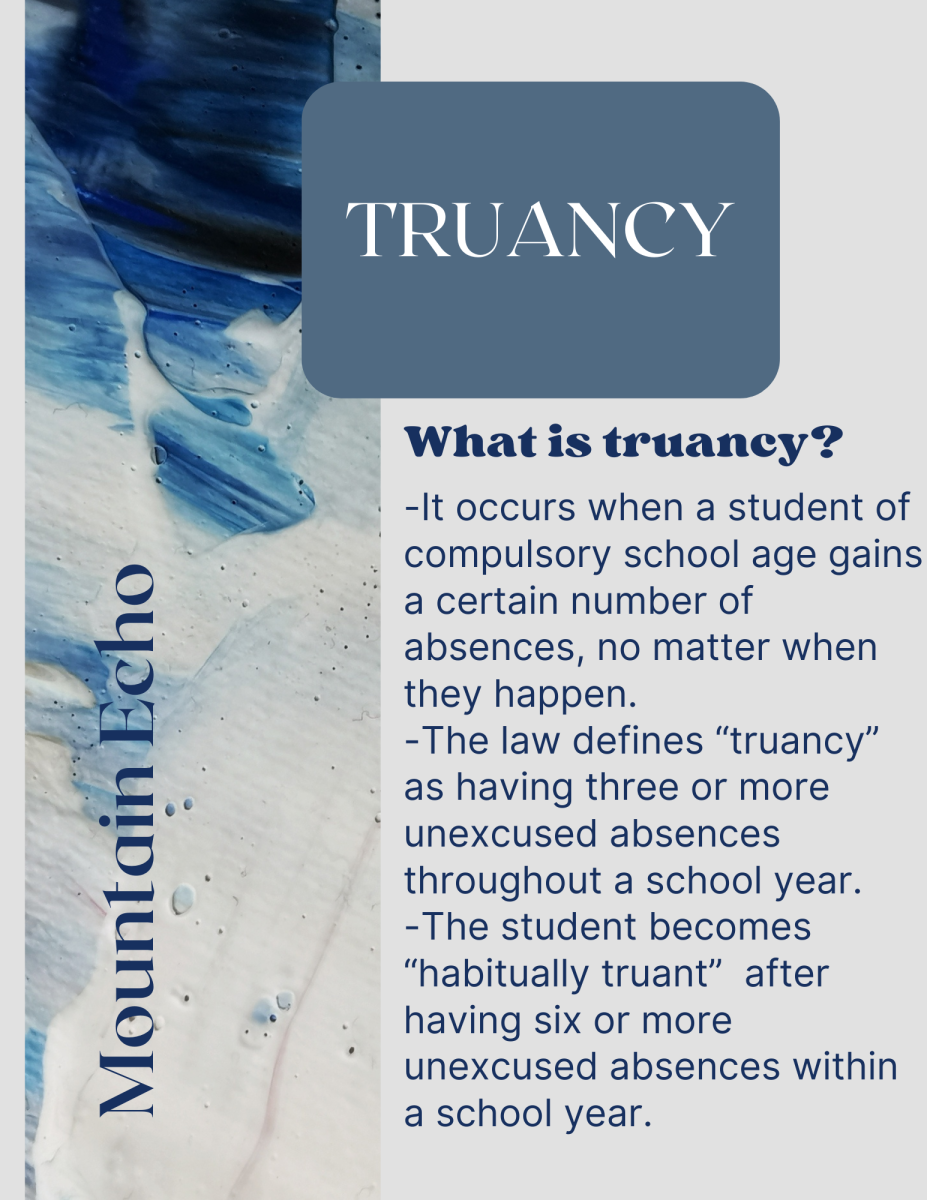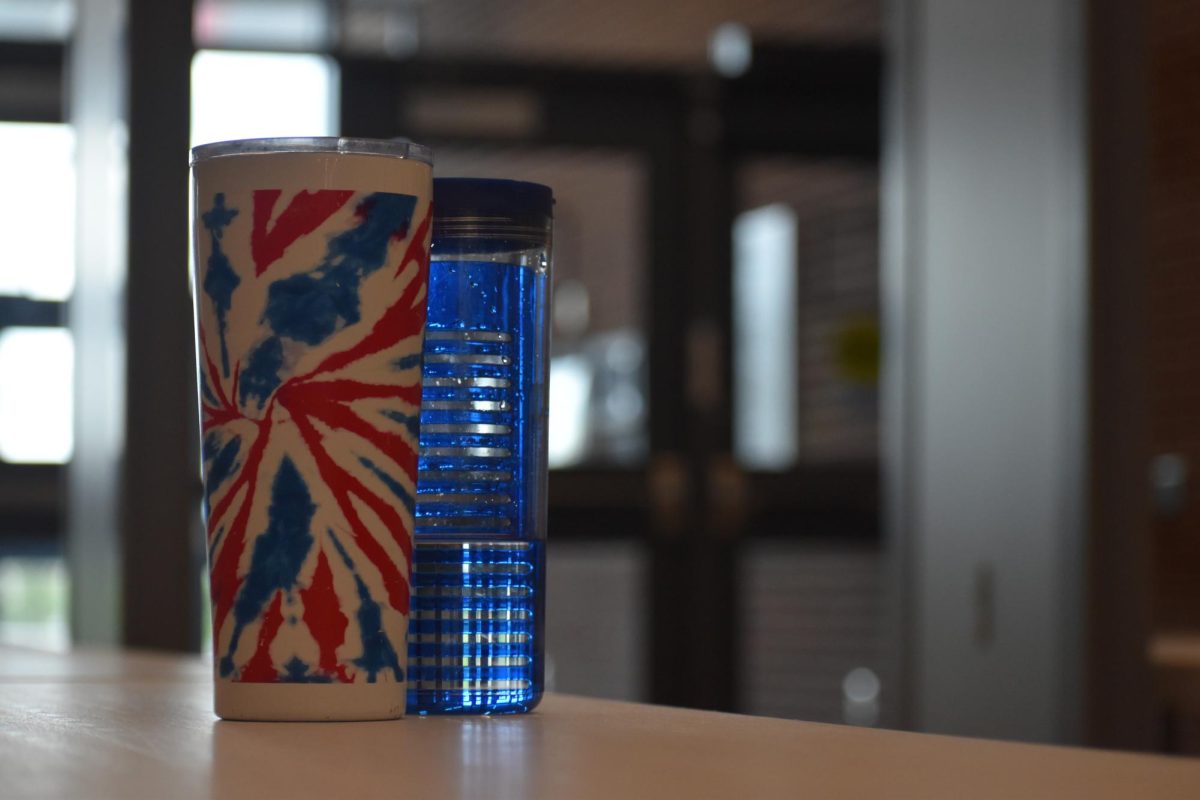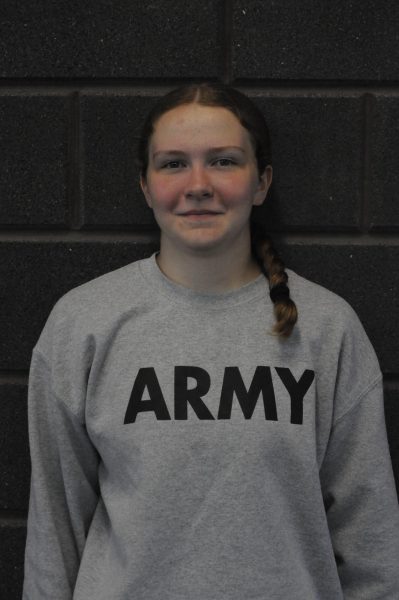Every year students miss multiple days of school leading to conflicts that can potentially get them held back.
“It doesn’t affect me. It affects their [students’] workload and where they are at following along with their class, so it’s more detrimental to them,” teacher Betsy Cron said.
Missing one day of school creates more work for teachers and students.
“It creates additional things, like trying to make sure that all students are getting their work every day,” assistant principal Erik Dambeck said. “It affects the teacher because they want to make sure that they’re providing to all their students so that they’re going that extra mile to make sure that it’s not the classroom or to make sure that a student gets what they need and wants to come back the next day. A teacher still is making sure that they get all the materials they need and get caught up,” assistant principal Erik Dambeck said.
For student Jacob Ceglar, when he misses a day it doesn’t create such a problem.
“I usually only miss three to five days a year because of the flu. With certain classes it’s hard, but usually, it’s in Google Classroom, so I know precisely what I’ve missed. With teachers who don’t post on Google Classroom, I can usually just walk in and ask what I missed. Sometimes it takes a few days, but other times I can do it that evening if it’s not too much. It’s usually not too difficult. I’m pretty good at getting my work done and getting it done quickly,” Ceglar said.
Social worker Patricia Sauka believes that connections within the school helps motivate students to come to school.
“We want the students to thrive here,” Sauka said. “A lot of times that’s by making different relationships within the school community. We look a lot to Friends of Rachel members to support students. The majority of time students miss it because they don’t like school or feel comfortable here.”
Students in Cron’s class work on group projects often, but when a student misses that changes what she has to do for that student.
“With group projects, they can’t make up that time. I give them an alternative assignment that usually is not as fun as the original assignment, but it makes up for what they missed,” Cron said.
When a student misses constantly, their classmates will sometimes help catch them up, but it becomes difficult after so many absences.
“It’s annoying because if you need to talk to them about something they aren’t there. Or if they need your help with something it’s hard to help them because they are behind and don’t understand what is happening in class. Eventually, they miss so much that they stop caring and they just get behind more,” Ceglar said.
Cron feels like students haven’t had the ambition to be in school ever since COVID-19 hit.
“I don’t think they care. Ever since coming out of COVID-19, attendance has been an issue in every class I’ve covered or taught. It’s frustrating. I have kids who aren’t cyber but have never stepped through the school door. They just don’t want to come,” Cron said.
Several students come in during homeroom, and teachers are required to tell students who show up after 7:40 that they have to go get a late pass.
“There is no urgency as far as attendance goes and coming in late, especially to homeroom first thing in the morning. Honestly, they come in and they look at you and are upset when we say they have to go to the attendance office. We’re halfway through the announcements so they are obviously late,” Cron said.
Students don’t feel like going straight to class when they get to the building so they find other things to do.
“I just don’t feel like going straight to class. I am tired half of the time,” sophomore Draven Corley said.
Once a student has six illegal absences, a meeting is held for that student to see where the issue in coming to school lies.
“The public school code is that we hold a student attendance improvement plan meeting,” Sauka said. “We reach out to the parent, invite the school counselor, principal, and community providers if we know of any, and hold a meeting to talk about why the student doesn’t come to school. We try to find the barriers to the kids coming to school. We really try to access all areas of the student’s systems.”
There are consequences for chronic absenteeism.
“If you miss 35 days in school, you’re automatically retained,” assistant principal Keri Harrington said. “And we have a lot of kids who fall into that category, especially since COVID-19. I think once COVID-19 happened, it’s kind of like we’re still battling out of that mindset. So, we’ll come to school, but we also want to get back to a little bit of that resiliency so that we’re not seeing kids who are retained in such large amounts of numbers. Also adding to those retentions when you’re not here, you’re not earning your credits.”
Students fall into a cycle of what the people they associate with do.
“I was just skipping with my friends really. I don’t come to school until 7:35, and I hit breakfast. I don’t have time to go to homeroom sometimes, so I go down and get a late excuse and don’t get it until first period hits,” Corley said.
Students with good attendance say they benefit from it because they have a balanced workload every night and have something to do.
“It’s allowed me to make sure I don’t get caught behind on things. I don’t miss assignments. I am able to keep up with my academics and my social life. It’s good to be here every day because I get extraordinarily bored if I am not doing something,” Ceglar said.









